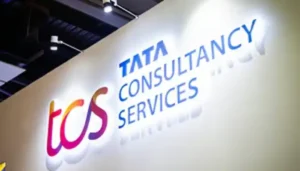Tata Consultancy Services (TCS), India’s largest private-sector employer, has undertaken its steepest workforce reduction to date as global economic pressures, tightening U.S. policies, and the rapid adoption of artificial intelligence transform the country’s $280 billion IT services sector.
In the quarter ended September 30, the company reduced its headcount by 19,755 employees, according to its quarterly earnings report. This number includes both voluntary exits and layoffs.
The total workforce at Asia’s biggest IT outsourcer declined by 3.2% from the previous quarter, dipping below 600,000 for the first time since March 2022. TCS also set aside ₹11.35 billion ($128 million) in severance-related costs for the quarter.
Workforce Realignment Driven by New Technological Demands
Chief Human Resources Officer Sudeep Kunnumal said that the headcount reduction is part of a planned initiative targeting approximately 2% of the total workforce by March next year. The move focuses primarily on middle and senior management roles where there is a “skill and capability mismatch.”
Kunnumal emphasized that the company is midway through this realignment process as it restructures around emerging technologies such as generative AI. Analysts at Citi noted that the workforce reduction signals a cautious business outlook.
TCS’s profit for the quarter fell short of market expectations, largely due to the one-time costs associated with layoffs.
Impact of U.S. Policy and Global Economic Uncertainty
The strategic shift comes at a time when U.S. President Donald Trump’s policies—including curbs on H-1B visas and the introduction of significant tariffs on Indian goods—are reshaping cross-border business conditions.
While the direct financial impact of tariffs on the IT sector may be limited, these measures have added to uncertainty around global IT spending.
The combination of tightened immigration rules, slower client spending, and geopolitical tensions has placed additional pressure on technology exporters like TCS, which have historically fueled high-skill employment in India since the 1990s.
Renewed Focus on “Future-Relevant” Skills
To mitigate policy risk and ensure business continuity, TCS has accelerated localization of its U.S. workforce, reducing reliance on foreign work visas. “Our business model will be able to adapt quickly to any changes in immigration policy,” Kunnumal told analysts.
The company remains committed to hiring talent equipped with “future-relevant skills” aligned with emerging digital, AI-driven, and automation-based project demands.
Note: We are also on WhatsApp, LinkedIn, and YouTube to get the latest news updates. Subscribe to our Channels. WhatsApp– Click Here, YouTube – Click Here, and LinkedIn– Click Here.



